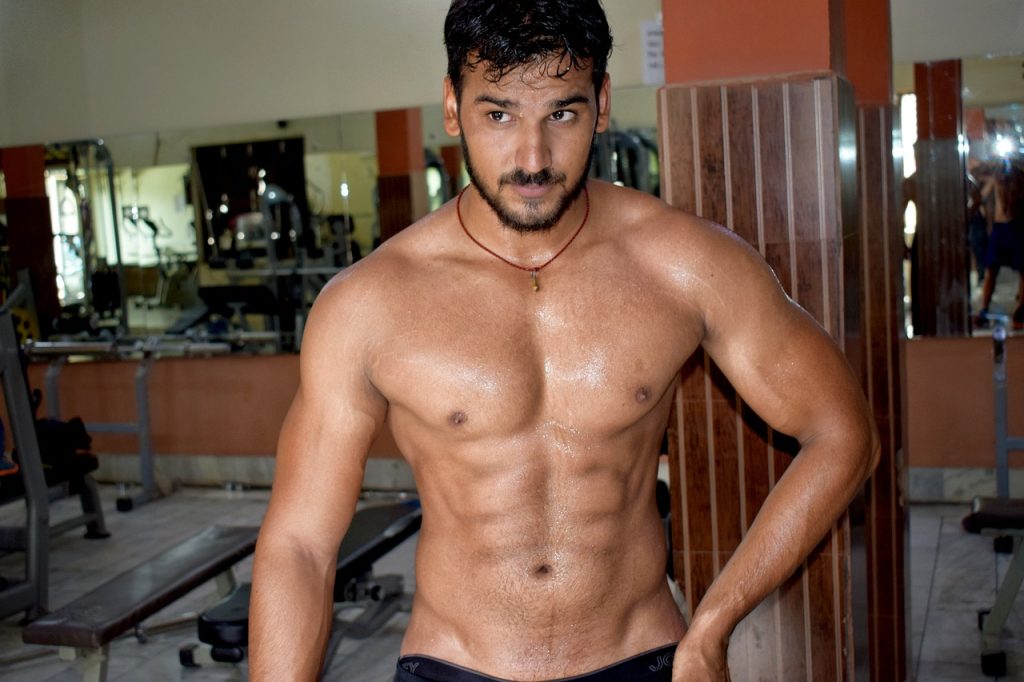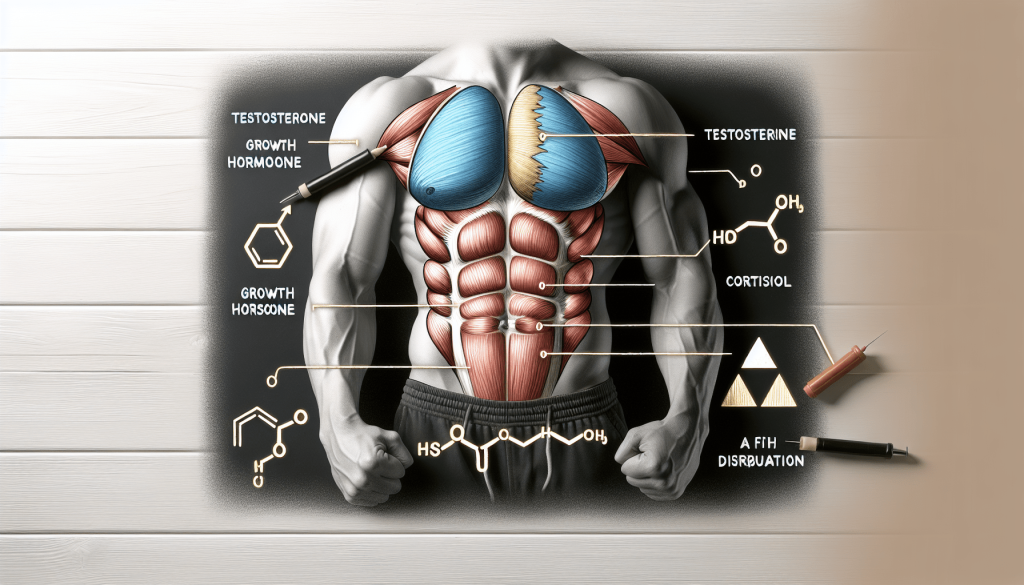Have you ever wondered how hormones play a role in the development of a six-pack? Building a strong core and achieving those coveted washboard abs requires more than just countless crunches and dedicated gym sessions. Hormones, the chemical messengers in our bodies, actually play a crucial role in our body composition and muscle growth. In this article, we will explore the fascinating connection between hormones and the development of a six-pack, answering some frequently asked questions along the way. So, get ready to discover how these invisible substances can have a visible impact on your fitness journey.
Role of Hormones in Six-Pack Development
When it comes to achieving a well-defined six-pack, hormones play a crucial role in the development and maintenance of those coveted abdominal muscles. These chemical messengers in the body have a significant impact on muscle growth, protein synthesis, fat metabolism, and overall body composition. Understanding the role of hormones, such as testosterone, growth hormone, insulin, cortisol, and estrogen, can help you optimize your efforts and achieve your desired results.
Testosterone
One of the primary hormones involved in six-pack development is testosterone. Testosterone is predominantly a male hormone, although it is also present in females, albeit in smaller amounts. This hormone plays a crucial role in promoting muscle growth and enhancing protein synthesis. By increasing protein synthesis, testosterone helps your muscles repair and grow after intense workouts, which is crucial for developing a chiseled six-pack. Additionally, it aids in burning body fat, leading to a more favorable body composition.

Growth Hormone
Another hormone that plays a vital role in the development of a six-pack is growth hormone (GH). Produced by the pituitary gland, growth hormone stimulates muscle growth and enhances fat metabolism. GH works by promoting the production of insulin-like growth factor 1 (IGF-1), which is involved in the development and repair of muscles. With increased levels of growth hormone, your body is better able to build and maintain lean muscle mass, essential for achieving a well-defined six-pack. Furthermore, growth hormone aids in fat metabolism, helping to reduce overall body fat percentage.
Insulin
Insulin, a hormone released by the pancreas, is primarily known for its role in regulating blood sugar levels. However, insulin also plays a part in six-pack development. It facilitates the transport of glucose into cells, providing energy for muscle contraction during workouts. Additionally, insulin promotes protein synthesis, aiding in muscle growth and recovery. By maintaining stable blood sugar levels through the regulation of insulin, you optimize your body’s ability to develop and maintain a six-pack.

Cortisol
While cortisol is an important hormone involved in various bodily functions, it can have a negative impact on muscle development when present in excess. Often referred to as the “stress hormone,” cortisol is released by the adrenal glands in response to stress or low blood sugar levels. Excessive levels of cortisol can lead to muscle breakdown and increased fat storage, both of which can hinder the development of a six-pack. It is important to manage stress levels and adopt stress-reducing techniques to keep cortisol levels in check and optimize your muscle-building efforts.
Estrogen
Estrogen, predominantly a female hormone, also plays a role in the development of a six-pack. While it is true that both men and women produce estrogen, men generally have lower levels. High levels of estrogen can impede muscle development and promote fat storage, making it more challenging to achieve a well-defined six-pack. Balancing estrogen levels through lifestyle choices can contribute to optimizing your hormone levels for the desired results.

Effects of Hormonal Imbalance
When hormones are out of balance, it can have negative effects on six-pack development. Reduced muscle growth, increased fat storage, and inhibited six-pack development can occur when hormone levels are not optimized. Imbalances in testosterone, growth hormone, insulin, cortisol, or estrogen can significantly impact your ability to develop and maintain the abdominal muscles necessary for a visible six-pack. Understanding the effects of hormonal imbalance highlights the importance of addressing any imbalances for optimal results.
Ways to Optimize Hormonal Balance
To optimize hormonal balance and enhance six-pack development, several lifestyle factors come into play. Incorporating regular exercise, particularly strength training, plays a key role in promoting a favorable hormonal environment for muscle growth. Additionally, ensuring adequate sleep and following a healthy diet contribute to hormonal optimization and overall well-being.

Tips for Hormonal Optimization
To further optimize hormonal balance and maximize your chances of achieving a well-defined six-pack, consider implementing the following tips:
Focus on Compound Exercises
Compound exercises, which involve multiple muscle groups, are highly effective in stimulating hormonal responses that support muscle growth. Exercises like squats, deadlifts, and bench presses engage large muscle groups and promote a favorable hormonal environment for developing a six-pack.
Manage Stress Levels
As previously mentioned, excessive cortisol levels can negatively impact muscle development. Engaging in stress-reducing activities, such as meditation, yoga, or spending time in nature, can help manage stress levels and lower cortisol production.
Include Resistance Training
Resistance training, in addition to compound exercises, should be an integral part of your workout routine. Incorporating exercises that target the abdominal muscles, such as planks, crunches, and leg raises, can help strengthen and define your abdominal muscles.
Consume Essential Nutrients
A well-rounded and nutritious diet plays a crucial role in optimizing hormone levels. Ensure you are consuming an adequate amount of protein to support muscle growth and repair. Additionally, include a variety of fruits, vegetables, whole grains, and healthy fats to provide your body with essential nutrients needed for hormonal balance and overall well-being.
Conclusion
In conclusion, hormones play a significant role in the development of a well-defined six-pack. Testosterone and growth hormone promote muscle growth and fat metabolism, while insulin regulates blood sugar levels and promotes protein synthesis. On the other hand, cortisol and estrogen can negatively impact muscle development and promote fat storage if not properly balanced. Understanding the effects of hormonal imbalances and implementing lifestyle factors to optimize hormonal balance, such as regular exercise, strength training, adequate sleep, and a healthy diet, can contribute to achieving your six-pack goals. Remember, consistency and patience are key when it comes to developing and maintaining a chiseled midsection.






